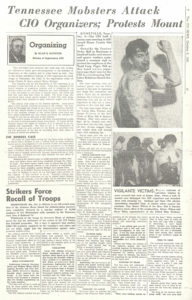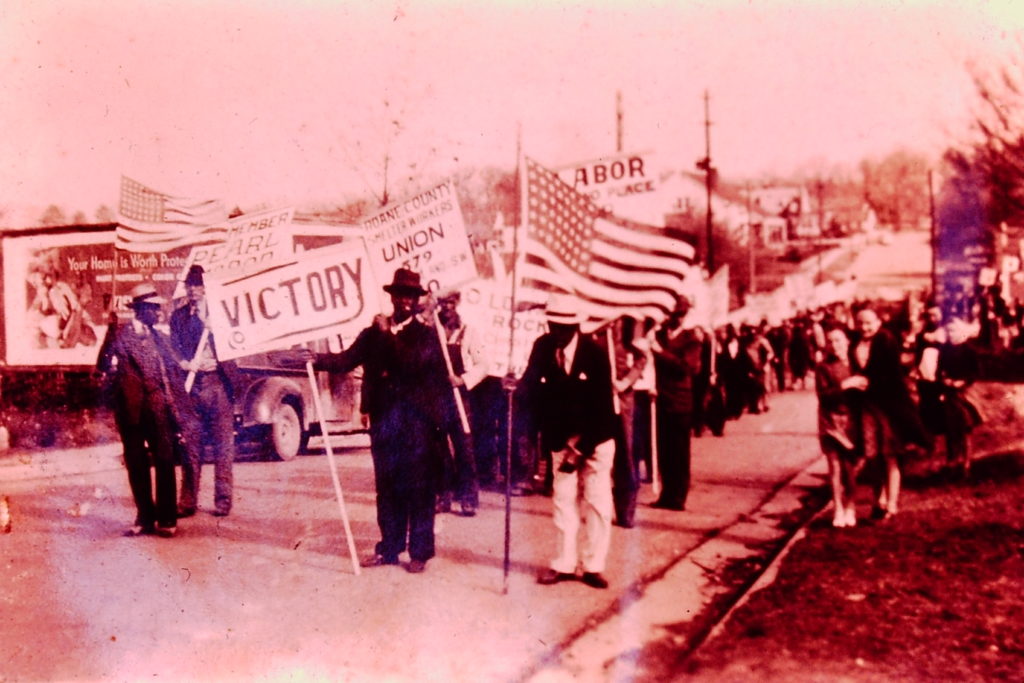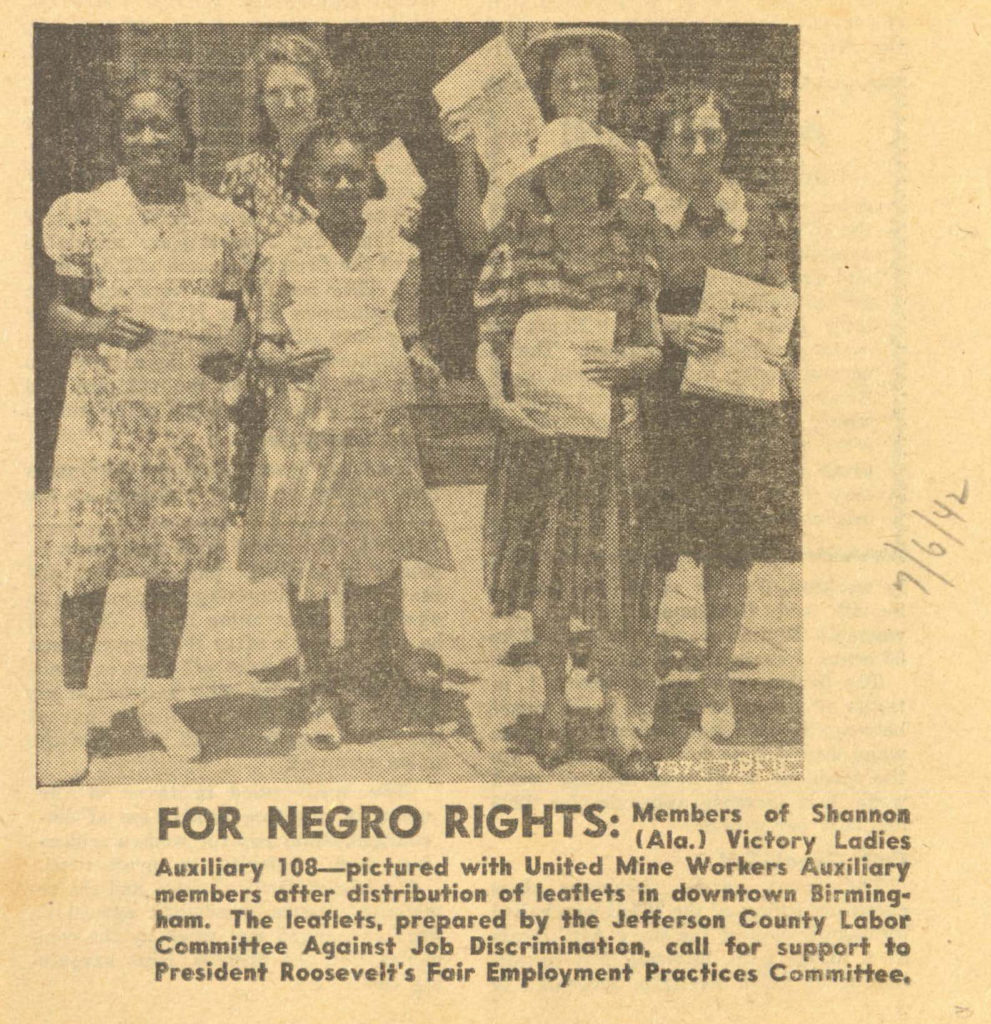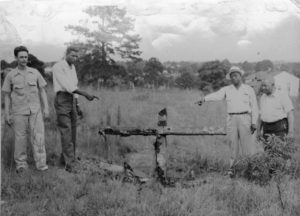Sacrifice – The Rosses in the South
The M. H. Ross Papers digital collection is now publicly accessible online. Digitization of the M. H. Ross Papers is being funded by a $48,865 grant from the National Historical Publications and Records Commission and will continue through September 2018.
By early 1941, Mike Ross was working as a Field Representative for the United Mine Workers of America (UMWA), which was still part of the Congress of Industrial Organizations (CIO) at the time. Mike’s official duties involved a tremendous amount of responsibilities, including helping workers gain signatures to get elections and unionize, bargaining with companies, handling grievances, and even designing and mimeographing all leaflets on his own. Constantly on the move from one plant to another, from state to state, Mike worked at a feverish pace and faced significant harassment and even danger.

As news of this violence spread, CIO headquarters in Knoxville asked if anyone would volunteer to resume the work in Roane County, Tennessee, Mike Ross was one of two men to immediately raise his hand.
Ross left Saltville, Virginia, where he had been organizing the Mathieson Alkali Works, and began work on elections in Rockwood, Tennessee. Under the cover of darkness, he would enter Roane County surrounded by cars full of armed laborers for protection. Everyone would meet in a small, darkened worker’s house, sometimes fitting 40-60 people in one room, and they would play music, give speeches, and organize. Under these conditions, this underground movement prepared for an election. In January of 1942, Roane County Smelter Workers Union 579 won a labor board election by a vote of 323-1. The following April in Rockwood, Tennessee, over 500 people participated in a victory parade hosted by the CIO.

Mike Ross spent a majority of time for the remainder of 1942 in Bessemer and Birmingham, Alabama, where he helped unionize locals, worked on war-time resolutions for workers, and also administrated an educational program. Over 200 members of 18 locals and auxiliaries registered for union classes in Bessemer, AL, many of whom could not read or write but still came out to learn many of the same topics that Mike himself learned at the Southern Summer School for Workers.

In 1946, Mike Ross and an African American union representative named Frank Allen moved to Macon, Georgia as a part of Operation Dixie, which was aimed at unionizing anti-labor strongholds in the South, especially within textile manufacturing. All-white primaries had just been federally overturned in Georgia and, while African Americans were registering to vote in masses, the Ku Klux Klan and other white supremacists responded with ferocity and terror.

After moving to the shack, the family’s landlord warned them that the KKK was out to kill Mike and gave Buddie instructions on how to escape with their daughter when—not if—the KKK arrived to lynch him. The fear of violence was so great that friends would often camp out at the home, armed with guns just in case.
In August of 1946, while the Ross family was out of town, their home was ransacked and a threatening letter was left behind. Immediately following this ordeal, the editor of the Macon Telegraph Buford Boone published an inflammatory piece on Mike, questioning the veracity of the attack on the Ross home and Mike’s integrity in general and insinuating that Mike was a Communist, publishing personal details such as work history and family relationships to back up his claims. Mike threatened legal action for libel, but a tragic attack on the family was quickly to follow.
One evening, while waiting for her husband to return from work, a pregnant Buddie opened the door to find 25 fully-robed klansmen intent on lynching her husband. After threatening her in search of her husband’s whereabouts, they left. Unaware of the danger at home, Mike had taken an alternate route that night and returned to find his wife and young child in hysterics. While hospitalized, Buddie suffered a miscarriage.
The Rosses did not stay much longer in Macon, but Mike and Buddie continued to work tirelessly in organizing unions all across the country for many more years. In the decades to come, Mike would diversify his skills time and again, showing that his moral commitment to the working class of America truly had no bounds.
To learn more about just some of Mike’s many activities in the South in the 1940s, explore these related folders:
Union arbitration materials, Spartanburg, South Carolina, 1942
Alabama, Mine, Mill and Smelter Workers (MMSW), [folder 1 of 2], ca 1941-1943
Alabama, Mine, Mill, and Smelter Workers (MMSW), [folder 2 of 2], ca 1941-1943
Newsclippings – labor, politics, war, [folder 1 of 2], 1940s
Newsclippings – labor, politics, war, [folder 2 of 2], 1940s
MH Ross, Interviewed by Jane Ross Davis (Tape 4 of 6)